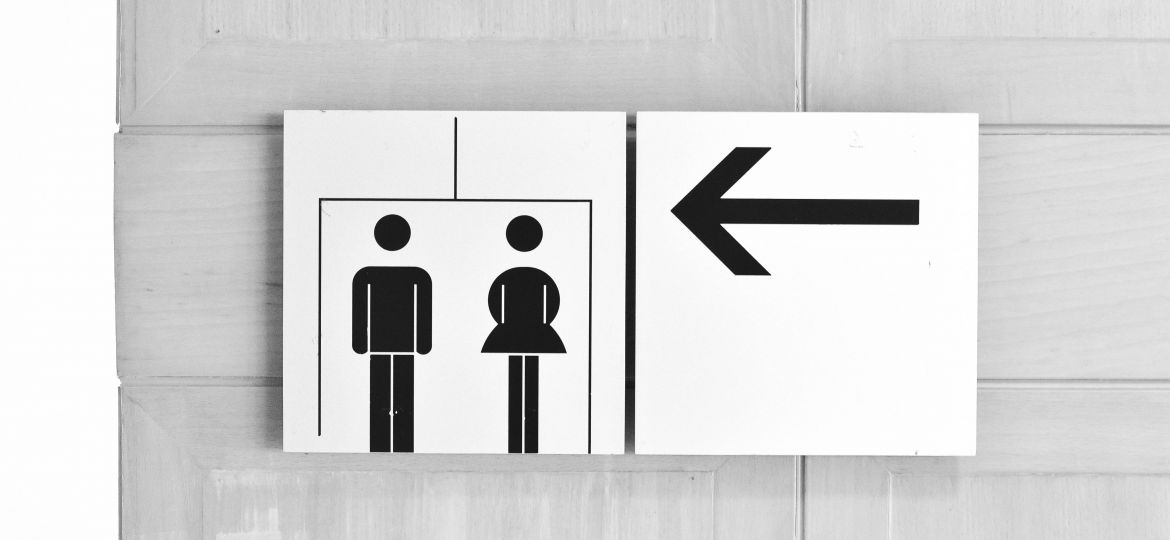While Parkinson’s is classified as a movement disorder, non-motor symptoms often appear first, outnumber motor symptoms and can cause more stress and frustration than motor symptoms do in everyday life. Two of the most common non-motor symptoms in Parkinson’s are bowel and urinary dysfunction, yet these often go undiscussed due to societal norms. If left unaddressed, these symptoms can worsen over time. Recognizing and discovering how you can best manage your bowel and urinary symptoms is critical for learning to live well with Parkinson’s.
BOWEL DYSFUNCTION
Studies show as many as 80% of people with Parkinson’s suffer from constipation. Constipation is defined as fewer than three bowel movements per week. One of the effects Parkinson’s has on the autonomic nervous system seems to be the slowing down of food through the gastrointestinal tract, which can result in constipation.
- Drink more fluids – Increasing fluid consumption can help decrease symptoms of constipation. Doctors recommend aiming for 40-60 ounces of water per day, which is about 5-8 glasses.
- Increase your fiber intake – Adding insoluable fiber to your diet through foods or with supplements helps to improve stool consistency and movement through the digestive tract. The recommended fiber intake is 20-35 grams daily. If you’re looking to add more fiber to your diet, foods such as broccoli, beans, prunes, oatmeal and various nuts are all high in fiber.
- Take a stroll – Brisk walking can help facilitate normal digestion. Try to incorporate a walk after meals along with your daily exercise routine.
- Purchase a toilet stool – Modifying your toileting posture can help reduce straining. Toilet stools, like the Squatty Potty®, allow you to elevate your feet and position your pelvis in a more ideal position for defecation.
- Review your current medications – Certain medications can make constipation worse. Pain relievers, antacids, cold medicines, blood pressure medications, high cholesterol medications and even cardiovascular disease medications can all be culprits. If you are taking any of these medications and are experiencing constipation, discuss medication options with your doctor.
- Ask about stool softeners – Your doctor may recommend these medicines on a short-term basis to relieve constipation. By bringing more water into the bowels, these medications soften the stool, making it easier to pass it. Take these medications exactly as directed. Do not take more or less than directed on the label or prescribed by your doctor.
- Consider botulinum toxin injections – Research studies continue to examine the effectiveness of these injections into the anal sphincter as a safe treatment for chronic constipation. Ask your doctor for their thoughts on this treatment and to determine if you may be a good candidate for this procedure.
URINARY DYSFUNCTION
In Parkinson’s, the brain’s control of the urinary sphincter can become disrupted, leading to difficulty holding urine. This can manifest as urgency, frequency, incontinence (the accidental or involuntary loss of control of urine) or nocturia, the need to get up multiple times during the night to use the toilet.
- Avoid bladder irritants – Various fluids and foods can irritate the lining inside the bladder, causing the bladder to contract and release urine. Avoiding these irritants can help reduce symptoms of urinary incontinence, urgency and frequency. Examples of bladder irritants are coffee, tea, carbonated beverages, tomatoes and tomato juice, artificial sweeteners and spicy foods, as well as acidic foods or beverages.
- Minimize fluids before bed – About two hours before bed, aim to minimize fluid intake to reduce the frequency of getting up at night to use the toilet. During the day, however, be sure to drink plenty of fluids. Not consuming enough water can irritate the bladder, as well.
- Practice your Kegels – Urinary incontinence can be due to weakened pelvic floor muscles. These muscles lie deep within the pelvis and help close the urethra to prevent urine from releasing when we don’t want it to. Kegels are an excellent exercise to strengthen pelvic floor muscles. Consider working with a physical therapist who can help you learn how to properly perform this exercise and track your progress.
- Welcome adaptations – Having products like a commode or handheld urinal can make getting up in the night more convenient while also reducing the risk of falls. Additional adaptations like absorbency pads and bed protectors can help reduce the soiling of clothing and furniture. An occupational therapist can offer specific recommendations for safe bathroom and hygiene techniques based on your symptoms and preferences.
- Review your current medications – Certain medications can lead to urinary retention, urgency, frequency or incontinence. Diuretics for high blood pressure or vascular conditions, alpha blockers for hypertension, antidepressants, pain medications and sleeping pills can all play a role. If you are taking any of these medications and are experiencing urinary dysfunction, discuss medication options with your doctor.
- Consider urodynamic testing – By seeing a urologist, or other urinary specialist, you can utilize this diagnostic tool to assess how your bladder and urethra are functioning and identify the origin of your urinary symptoms – be it Parkinson’s or other issues. The results of your urodynamic test will help determine which medications will best alleviate your symptoms, which your doctor can then prescribe.
- Consider botulinum toxin injections – If you are not responding to conservative treatment, ask your doctor for their thoughts on this procedure and to determine if you may be a good candidate for this procedure.
 Don’t be afraid to be open with your doctor about your symptoms. Track your symptoms and use our constipation and bladder worksheets to talk about what is or isn’t working. A physical or occupational therapist in your area who addresses bowel and bladder dysfunction can help you take control of your symptoms, optimize your progress and improve your quality of life.
Don’t be afraid to be open with your doctor about your symptoms. Track your symptoms and use our constipation and bladder worksheets to talk about what is or isn’t working. A physical or occupational therapist in your area who addresses bowel and bladder dysfunction can help you take control of your symptoms, optimize your progress and improve your quality of life.
Special thanks to Kristen Parisi, PT of Lee Health for her expertise in Parkinson’s and bowel and urinary dysfunction therapies.
Take Control of Your Parkinson’s Treatment
Our Every Victory Counts® manual gives people living with Parkinson’s, their care partners and their family members the tools they need to take control of their own Parkinson’s treatment through a proactive approach to self-care.
This summer, we launched a powerful new print edition of this free beloved manual.
It’s jam-packed with up-to-date information about everything Parkinson’s, plus an expanded worksheets and resources section to help you put what you’ve learned into action. Color coding and engaging graphics help guide you through the written material and point you to complementary videos, podcasts and other materials on the Every Victory Counts companion website. And, it is still free of charge thanks to the generosity of our sponsors.
Request your copy of the new Every Victory Counts manual by clicking the button below.


















I take a probiotic and 1 fiber tablet daily seems to help . Thanks for all the helpful information.
You are very welcome, Ralph. It’s also very important to discuss any supplements you are taking with your pharmacist and doctor as they may have effects on your current medications.
I drink 4 ounces of prune juice every morning and it works wonders.
Prunes and prune juice are excellent sources of soluble fiber! Also, try adding high fiber or bran cereals in the morning and foods made from wheat, rye and oat flours instead of refined or white flours. Thanks for commenting, Steven!